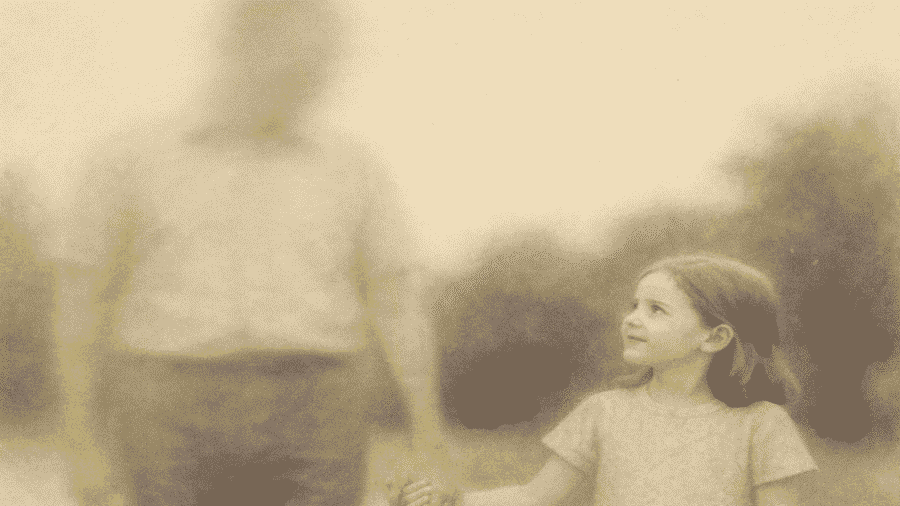I always thought the moment would come with some kind of warning. A shift in his voice. A distant look. Maybe even a pause too long before he spoke. But it did not.
It was a sunny afternoon in early March when my father looked at me across the living room, smiled, and said, “Linda, can you get me some water?” Linda is my aunt. His sister. And I am not her.
My name is Amelia. I am his only daughter.
That was the first time he forgot who I was.
How it was Before the Fade
My father, Thomas Clarke, was the sharpest man I knew. A high school principal for over thirty years, he could remember the names of thousands of students, even decades after they graduated. He read the newspaper front to back every morning, completed the crossword in ink, and could quote Shakespeare like it was second nature.
He used to call me “Little Clarke.” Said I had his brain and my mother’s heart. I believed him.
When he was diagnosed with early-onset Alzheimer’s at 63, I refused to believe the words. My father could not forget. He remembered everything.
But little by little, things began to slip.
At first, it was his keys. Then appointments. Then birthdays. He forgot how to start the lawnmower, how to turn off the oven, how to find his way back from the grocery store just two blocks away.
Still, I told myself it was normal. Stress. Age. Anything but what it really was.
When Things Began to Change
I moved back home after the diagnosis. My mother had passed years before, and I could not bear the thought of him living alone with a mind that betrayed him.
I remember one night he asked where his wife had gone. I reminded him—gently—that she had died in 2011.
He blinked. Then nodded. Then asked, “Was she a good woman?”
That night, I wept in the bathroom with the water running, my hand pressed against my mouth to muffle the sound. I had lost my mother once. I was losing my father in pieces.
The Unraveling
Over the next year, our house changed.
He started calling the fridge the “cold cupboard.” He wore his shoes to bed. Sometimes he mistook the hallway mirror for an old friend and held conversations with it.
But the worst days were the ones when he seemed lucid again—when he would hold my hand, look me in the eyes, and say, “I’m sorry. I know I’m going.”
Those days felt like gifts wrapped in grief.
And then one morning, he woke up and asked, “Are you the nurse?”
That was the last time he recognized me.
There is no guidebook for grieving someone who is still breathing. Alzheimer’s does not take people all at once. It takes them in layers, like a slow peeling away of everything you thought was permanent.
I learned how to feed him, bathe him, and speak gently even when he shouted. I learned how to laugh when he mistook the cat for a raccoon and how to smile through heartbreak when he clapped for cartoons like a child.
I made peace with the fact that he would not remember my birthday, or that I once played Juliet in my high school play, or how he had danced with me barefoot in the kitchen when I got accepted into college.
But I remembered.
And I believe on some level, deep in whatever parts of his brain were still lit, that he felt my love—even if he could not name it.
He passed away on a rainy Friday morning in late October. His breath had grown shallow the night before, and I knew it was coming. I sat beside his bed, read his favorite sonnet aloud, Shakespeare’s 73rd, and held his hand.
When he took his last breath, he was looking at me. His eyes were calm. And for a fleeting moment, I swear, I saw something flicker in them. Recognition. Gratitude. Peace.
What I Carry Now
My father forgot my name. But I will never forget his.
I still hear his laugh when I walk through the school halls I now teach in. I see his handwriting in my old report cards. Mostly, I remember how he taught me to tie my shoes, balance a checkbook, and never go to bed angry.
Alzheimer’s took his memory. But it could not take mine.
If you are watching someone you love slip away, please know this: it is okay to mourn while they are still here. It is okay to laugh, cry, scream, and pray. And it is more than okay to hold on to the love, even when it no longer gets returned in the same way.
You are not alone. And neither are they.



Add a Comment